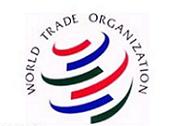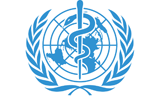The influence of Free Trade Agreements provisions on the implementation of the TRIPS Agreement
Fábio Pereira*
Free Trade Agreements are contributing to undermine the attempts to find a solution to the access to essential medicines problem. How do FTAs affect the flexibilities to ease access to medicines by developing and least-developed countries, as provided by the TRIPS Agreement?
According to the Aids Epidemic Update 2005, the  annual report published by the Joint United Nations Programme on HIV/AIDS (UNAIDS) and the World Health Organization (WHO), the number of adults and children living with HIV in the Sub-Saharan Africa is around 25.8 million, what corresponds to two thirds of all people infected in the world1. This is just an example of one the epidemics which shall urgently be combated in the Third World. Those countries, developing and least-developed ones, face basic problems as poverty, lack of education, absence of proper sanitary conditions and precarious public healthy systems. Furthermore, most of those countries are incapable of producing pharmaceutical drugs needed to deal with health crisis, such as AIDS.
annual report published by the Joint United Nations Programme on HIV/AIDS (UNAIDS) and the World Health Organization (WHO), the number of adults and children living with HIV in the Sub-Saharan Africa is around 25.8 million, what corresponds to two thirds of all people infected in the world1. This is just an example of one the epidemics which shall urgently be combated in the Third World. Those countries, developing and least-developed ones, face basic problems as poverty, lack of education, absence of proper sanitary conditions and precarious public healthy systems. Furthermore, most of those countries are incapable of producing pharmaceutical drugs needed to deal with health crisis, such as AIDS.
The legal scenario in which the Free Trade Agreements (FTAs) are negotiated and executed is comprised by the Trade-related Aspects of Intellectual Property Rights (the TRIPS Agreement), elaborated during the Uruguay Round of Trade negotiations, which has the broad purpose of harmonising the manner in which intellectual property is protected worldwide and also of setting up a mechanism for the settlement of disputes between World Trade Organization Members2, including the issuing of minimum standards for Intellectual Property protection and the assurance that its members develop, in their own legislations, mechanisms to enforce such rights; the Doha Declaration on the TRIPS Agreement and Public Health of 14 November 2001, which clarified and emphasized the flexibilities contained in the TRIPS Agreement and addressed some of its problems, such as the lack of more accessible measures to comply with public-health needs; the August 2003 Decision on implementation of paragraph 6 of the Doha Declaration on the TRIPS Agreement and Public Healthy which, by temporarily waving article 31(f) of the TRIPS Agreement, allowed countries to import essential drugs from other WTO Members, without the consent of the patent holder, subject to a number of conditions; and, finally, the Decision to the December 6, 2005 agreement on an amendment to TRIPS, making the previously mentioned waiver as permanent, which is expected to be formally accepted by WTO members until December 1, 2007.
Access to medicine has always been a problem for the developing and least-developed countries, due to high cost of patented drugs, lack of investment in the pharmaceutical sector and insufficient investment on research and development of new drugs, added to all the structural problems faced by those countries. The TRIPS Agreement, though, established some safeguards aiming to ease the access to essential medicine on articles 7, 8 and 313. Article 7 states that the protection and enforcement of Intellectual Property Rights should contribute to the promotion of technological innovation and to the transfer and dissemination of technology, to the mutual advantage of producers and users of technological knowledge and in a manner conductive to social and economic welfare, leading to a balance of rights and obligations. Complementarily, article 8 emphasizes the principles of protection to public health and nutrition, promotion of the public interest in sectors of vital importance to members' socio-economic and technological development and the prevention of the abuse of intellectual property rights by right holders or of the resort to practices which unreasonably restrain trade or adversely affect the international transfer of technology. Finally, article 31 states the applicable provisions for the use of a subject matter of a patent without the authorization of the right holder, meaning, without the expressed term, a compulsory licence, which shall be given after satisfaction of the conditions, set forth in article 31.
developing and least-developed countries, due to high cost of patented drugs, lack of investment in the pharmaceutical sector and insufficient investment on research and development of new drugs, added to all the structural problems faced by those countries. The TRIPS Agreement, though, established some safeguards aiming to ease the access to essential medicine on articles 7, 8 and 313. Article 7 states that the protection and enforcement of Intellectual Property Rights should contribute to the promotion of technological innovation and to the transfer and dissemination of technology, to the mutual advantage of producers and users of technological knowledge and in a manner conductive to social and economic welfare, leading to a balance of rights and obligations. Complementarily, article 8 emphasizes the principles of protection to public health and nutrition, promotion of the public interest in sectors of vital importance to members' socio-economic and technological development and the prevention of the abuse of intellectual property rights by right holders or of the resort to practices which unreasonably restrain trade or adversely affect the international transfer of technology. Finally, article 31 states the applicable provisions for the use of a subject matter of a patent without the authorization of the right holder, meaning, without the expressed term, a compulsory licence, which shall be given after satisfaction of the conditions, set forth in article 31.
This latter provision could be applied for the granting of compulsory licences to national authorities or private companies to produce, without the patent holder authorization, generic drugs which would be certainly cheaper than the patented ones. That was considered an achievement by some developing countries with manufacturing capacity. However, article 31(f) specifies that such use shall be authorized "predominantly" for the supply of the domestic market of the Member authorizing the use. This provision clearly prevented the exportation of generic drugs from WTO Members with manufacturing power to WTO Members without pharmaceutical industries capable of producing the drugs themselves, unless the exporting company had invoked an equivalent compulsory license to supply its own market and is able to export the exceeds4.
However, the use of compulsory licences brought concerns, mainly because it could discourage foreign investments in local manufacturing, research and transfer of technology to developing countries, or either because it could contribute to prevent the development of other policies which could be more effective than the licence itself.
In this context, the Doha Declaration was adopted on 2001, reaffirming that the TRIPS Agreement should not prevent measures to protect public health and should promote access to medicines for all5. As another attempt to combat the problem of access to medicines, the Doha Declaration recognized, on paragraph 6, the difficulties faced by WTO Members with insufficient or no manufacturing capacities in the pharmaceutical sector to make effective use of the compulsory licensing under the TRIPS Agreement, instructing the Council for TRIPS to find a solution until the end of 2002.
A few solutions were presented as a Dispute Settlement Moratorium and, as an alternative, a temporary waiver of article 31 (f) of the TRIPS Agreement to those Members with no, or insufficient, domestic manufacturing capacity facing a public health crisis, to allow manufacturing and exportation under a compulsory licence, within the territory of another Member6. At this stage, the U.S. position was that such exemption should be limited to the epidemics mentioned at paragraph 1 o f the Doha Declaration, what was criticized by NGOs. The U.S. and the European Community also proposed that only least-developed countries should be eligible to the exemption, in order to prevent high-income developing countries to benefit from the measure, what was again criticized by NGOs and by a number of developing countries. Another point of the discussion, at that stage, was concerning which countries should be eligible as exporters of low-cost essential drugs. The U.S. defended that developed countries should not be suppliers as it would weak technology transfer and pharmaceutical investments in developing countries, the latter which should be suppliers.
f the Doha Declaration, what was criticized by NGOs. The U.S. and the European Community also proposed that only least-developed countries should be eligible to the exemption, in order to prevent high-income developing countries to benefit from the measure, what was again criticized by NGOs and by a number of developing countries. Another point of the discussion, at that stage, was concerning which countries should be eligible as exporters of low-cost essential drugs. The U.S. defended that developed countries should not be suppliers as it would weak technology transfer and pharmaceutical investments in developing countries, the latter which should be suppliers.
The WTO Members reached a decision on August 2003, providing a temporary waiver of article 31(f) until such time as it is amended. The waiver established, in a broadly sense, that pharmaceutical products are any patented product; that any WTO Member is eligible to use the exemption, upon notification to the TRIPS Council; that any Member is entitle to produce and export pharmaceutical products to importing countries; that those drugs should be easily distinguishable; and that the TRIPS Council should help the settling of disputes, by receiving notifications and by annually reviewing the Decision. It also required, in its 11th paragraph, an amendment to the TRIPS Agreement.
Notwithstanding, concerns about the applicability of the mentioned waiver still remained, as the system was considered too complex to be used by developing countries, considering that, in the case the drug was patented on both exporter and importer countries, two compulsory licences would have to be issued and this would be a very complicated administrative procedure.
Other alternatives to the Doha-based solution have also being implemented as donation of essential medicines by pharmaceutical companies to developing countries; price reductions, which lead to parallel importation and also lead to measures against diversion of trade in low-cost essential medicines and of generic drugs produced under compulsory licensing; public-private partnerships; the setting up of the Global Fund against AIDS, Tuberculosis and Malaria and the setting up of the World Health Assembly.
The Decision was accompanied by a Chairman's statement which set out the common understanding of the WTO members that the main objective of the Decision was to protect public health, and that the system that should be created by the amendment should be used in good faith. In addition, it emphasized the necessity of the medicines to reach the appropriate market and that measures to prevent diversion should be taken. Also evoked the “best practices” guidelines which had been used by some companies as good actions to distinguish drugs as well as the need of an amicably settlement of disputes.
 On December 6, 2005, WTO members reached an agreement to amend the TRIPS Agreement, making permanent the waiver contained in the August 30 WTO Decision, to allow WTO members to issue compulsory licences to export generic versions of patented medicines to countries with insufficient or no manufacturing capacity in the pharmaceutical sector7. It derogated article 31 (f), adding article 31bis; inserted provisions to prevent double remuneration to patents owners, both on importing and exporting countries; dealt with regional trade agreements; set out a Moratorium on non-violation complaints against measures taken in accordance to the amendment; among other provisions.
On December 6, 2005, WTO members reached an agreement to amend the TRIPS Agreement, making permanent the waiver contained in the August 30 WTO Decision, to allow WTO members to issue compulsory licences to export generic versions of patented medicines to countries with insufficient or no manufacturing capacity in the pharmaceutical sector7. It derogated article 31 (f), adding article 31bis; inserted provisions to prevent double remuneration to patents owners, both on importing and exporting countries; dealt with regional trade agreements; set out a Moratorium on non-violation complaints against measures taken in accordance to the amendment; among other provisions.
Welcomed by some international and national bodies, criticized by NGOs, the fact is that potential exporting countries such as Canada, Norway, India as well as the European Communities have started to adopt measures to implement the WTO Decision, by introducing legislation to allow the granting of compulsory licenses to countries with lack of manufacturing capacity in the pharmaceutical industry.
As seen above, after the TRIPS Agreement, many other actions have been brought into force in order to facilitate the access of essential medicines by developing and least-developed countries. Despite that, the main issue still remained as to bring into effectiveness the flexibilities established by the TRIPS, such as compulsory licences, exceptions to rights conferred by a patent and parallel importation. Following the Doha Declaration and the 30 August Decision on Implementation of paragraph 6 of the Doha Declaration, the December 6, 2005 Agreement on an Amendment to TRIPS seemed to be a significant step to allow the developing countries be beneficiated by those flexibilities, useful to ensure the access to drugs capable of fighting epidemics in the Third World. But why this process has not yet began?
Prof. Duncan Matthews, Senior Lecturer in Intellectual Property Law, at Queen Mary, University of London, suggests that there are two reasons why this is the case: lack of or not sufficient institutional capacity and local technical expertise and bilateral pressure, particularly in the context of Free Trade Agreements, because their Intellectual Property protection provisions are far more excessive than those required by the TRIPS Agreement.
The unawareness of the available flexibilities, under TRIPS, by members’ states or insufficient technical expertise leads to a non-use of the existent flexibilities, but this is not the only reason why TRIPS is not being implemented. A solution to this problem could be the technical assistance defined at article 67 of the TRIPS, which places an obligation on the developed WTO members to provide technical and financial co-operation to developing and least-developed members. The case is that this cooperation, which is being given mainly by the U.S. and WIPO, is more focused on ensuring high standards of Intellectual Property Rights enforcement and protection, much higher than required by the TRIPS Agreement, than to clarify and help to implement TRIPS flexibilities.
Regarding the Free Trade Agreements, entered mostly by and between the U.S. and the Developing World (with a few agreements executed with developed countries such as Australia), the problem is becoming even worse, because those agreements can limit intellectual property rights in detriment of developing nations. The consequences are that they reduce the effectiveness of the TRIPS flexibilities, by settling a number of clauses which contribute to increase the existent barriers to medicines’ access. For instance, in the U.S. Free Trade Agreements, most of the provisions reflect the intellectual property protection of the U.S. law8.
An example on how those agreements can directly affect the rights guaranteed in the TRIPS Agreement is the limiting of flexibilities through data exclusivity. Although article 39.3 of the TRIPS does not require a period of data protection as the Brussels Draft did, the U.S. Bilateral Free Trade Agreements now have a specific provision preventing a generic drug manufacturer from using the first producer’s data, primarily used for regulatory approval, to satisfy the requirements of approval to market a certain generic drug, for a period of 5 years. It means that the generic manufacturers would have to generate their own clinical test data to support their application, running the risk that the delay and the costly process could make the registration unaffordable, even if a compulsory licence was granted.
limiting of flexibilities through data exclusivity. Although article 39.3 of the TRIPS does not require a period of data protection as the Brussels Draft did, the U.S. Bilateral Free Trade Agreements now have a specific provision preventing a generic drug manufacturer from using the first producer’s data, primarily used for regulatory approval, to satisfy the requirements of approval to market a certain generic drug, for a period of 5 years. It means that the generic manufacturers would have to generate their own clinical test data to support their application, running the risk that the delay and the costly process could make the registration unaffordable, even if a compulsory licence was granted.
Another important role played by provisions of some regional and bilateral trade agreements on burdening TRIPS flexibilities is the expressed prohibition of parallel importation of medicines, which is not required by the TRIPS and in fact permitted by article 6 of the TRIPS Agreement and article 5(d) of the Doha Declaration, being a common balance of the market in developing countries.
Patent term extensions are also common in certain U.S. FTAs as a manner of compensating the pharmaceutical company for any unreasonable delay caused by the national patent authority in examining an application for patent. The effects are that this provision would contribute to delay the entry of the generic drug in the market, and consequently decrease the price for the medicine, delay the competition, etc.
According to Bryan Mercurio, those clauses are considered TRIPS-Plus provisions and are implemented by requirement to FTA partners. He mentions three forms of provisions: inclusion of new areas of Intellectual Property Rights or implementation of more extensive levels or standards of Intellectual Property protection than required by TRIPS or elimination of an option of flexibility available under TRIPS9.
In addition to the effect of undermining TRIPS flexibilities, there is an impact in the national laws of the countries agreeing to such agreements as far as they are also agreeing to modify their national Intellectual Property Laws as well, although some countries make it on a conscious basis, for the sake of access to new markets.
Despite the fact that some side letters have been issued by the U.S. in order to express their understandings about FTAs' provisions, those letters do not solve the problems raised in some agreements, and, more than that, because of their little legal effect, they do not give back to developing countries certain rights which, although assured by the TRIPS Agreement, have been taken off by a signature on a Free Trade Agreement.
In conclusion, although the implementation of the TRIPS flexibilities, which culminated in the Agreement of 6 of December 2005, depends on a range of national and international policies, including technical assistance to developing countries, strong coalitions and investments, effective participation and understanding of their role, Free Trade Agreements inequitable provisions contribute a lot to hinder the application of rights, already guaranteed by TRIPS, pushing developing countries a step back in their fight against AIDS and other epidemics, on one hand,- and safeguarding the interests of major pharmaceutical industries, on the other.
________________
[1] available at www.who.int/hiv/epi-update2005_en.pdf (visited 18 January 2007).
[2] Davis, Jennifer, Intellectual Property Law, Oxford University Press, (2005), p. 11.
[3] Matthews, Duncan, WTO Decision on Implementation of Paragraph 6 of the Doha Declaration on the TRIPS Agreement and Public Health: a Solution to the Access to Essential Medicines Problem? 7(1) Journal of International Economic Law, (2004), at 76.
[4] Duncan, above, at 78.
[5] Duncan, above, at 82.
[6] Duncan, above, at 85.
[7] Duncan, Matthews, WTO Decision to the December 6, 2005 agreement on an amendment to TRIPS. Sweet & Maxwell Ltd and Contributors, (2006) at 92.
[8] Duncan, Matthews, TRIPS Flexibilities and Access to Medicines in Developing Countries¸ (2005), at 425.
[9] Mercurio, Bryan, Regional Trade Agreements And The WTO Legal System, Lorand Bartels, Federico
Ortino, ed: Oxford University Press, (2006) at. 219.
________________
*Fábio Pereira is a legal counsel at Roberto Marinho Foundation, Rio de Janeiro, specialised in Intellectual Property Law, Master in Intellectual Property Law by Queen Mary, University of London, scholarship holder selected by the British Council, on behalf of the U.K. Foreign & Commonwealth Office, Post-graduated in Civil Law by the Higher School of Advocacy, in Rio de Janeiro, Contracts Manager at the University College London / University College London Hospitals Biomedical R & D Unit and member of the Brazilian Bar Association.